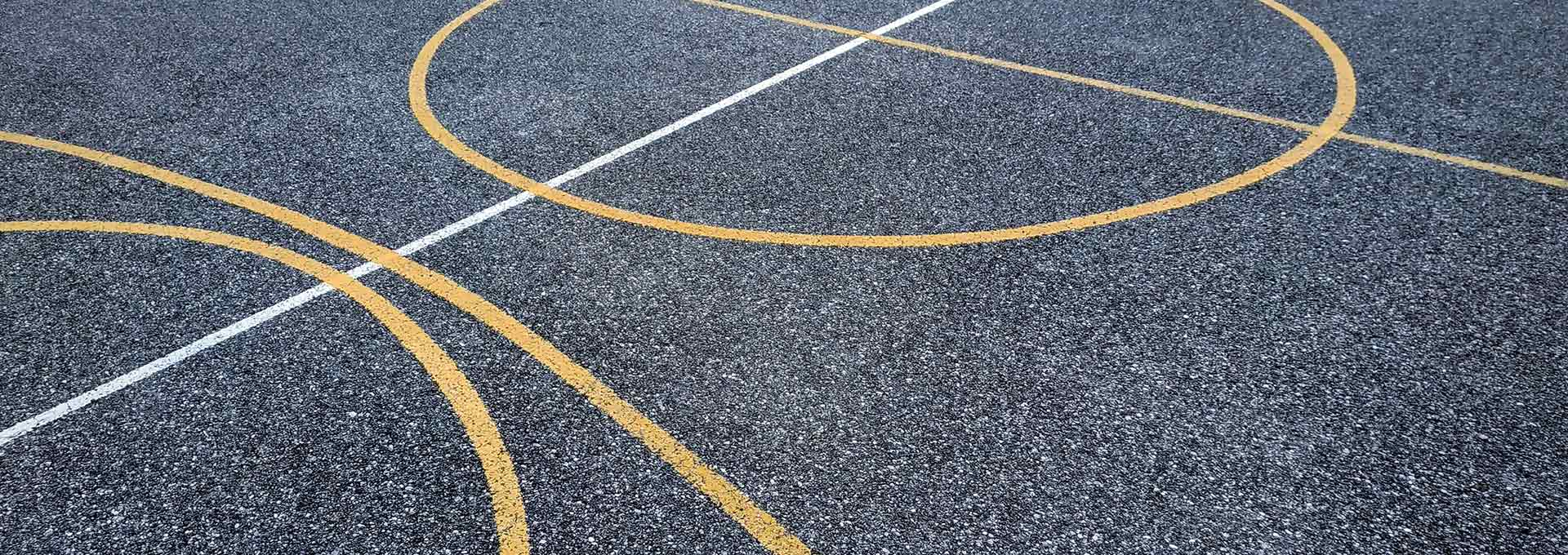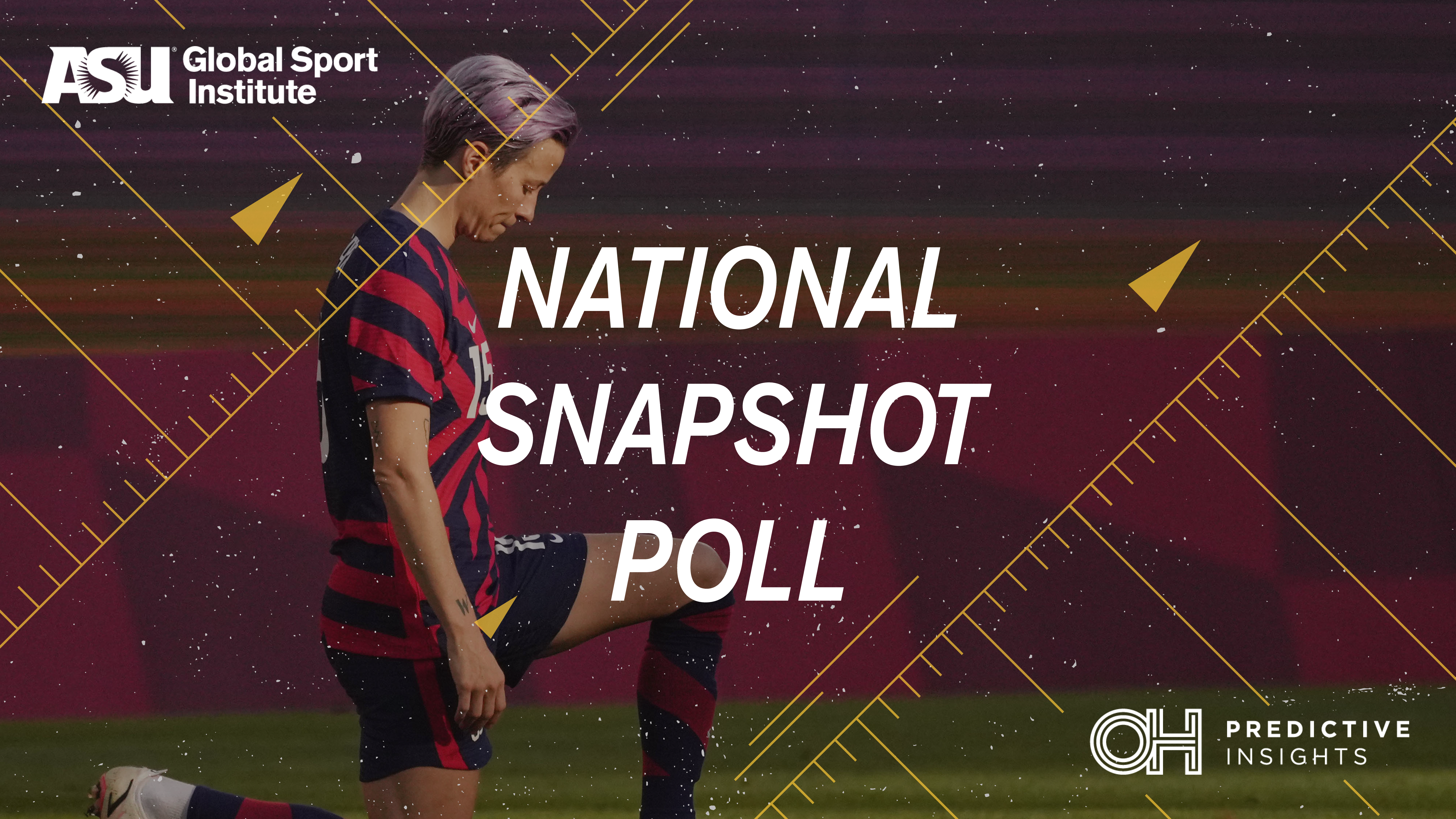
Resources
Global Sport Institute National Snapshot Poll: Fall 2022 - How Do Americans View Modern Athlete Activism?

The Global Sport Institute at Arizona State University recently shared results from a national survey conducted in partnership with OH Predictive Insights to identify how appropriate Americans believe it is for athletes to engage in activism, as well as how respondents perceived the efficacy of certain recent real-world examples of activism by American athletes in basketball, soccer and gymnastics. Results from the poll are attached, full data can be made available upon request.
The poll sought to examine respondents’ views of activism among athletes two years after the civil unrest that followed George Floyd’s murder in 2020 and impacted all corners of sport and society. Athlete activism remains a major story across many major sports competitions, as seen during and prior to this year’s FIFA World Cup, as well as in the events surrounding Russia’s detainment and recent release of U.S. Olympic gold medalist Brittney Griner.
In keeping with similar polling in recent years, respondents in this GSI/OHPI poll largely supported athletes advocating for social change, while also believing such activism should be kept separate from the actual games and competitions. Younger respondents and respondents of Color were more likely than older and White respondents to believe athletes had a responsibility to advocate for social change. When respondents were asked about recent examples of athlete activism in USA gymnastics and the NBA, however, results were more starkly split among racial-ethnic groups.
“When asking fans about athletes using their platforms to voice their opinions, we continue to see a majority of U.S. sports fans saying that they don’t want politics with their sports. They also are clearly becoming more accepting and in many cases supportive of athletes using their voices,” said Dr. Scott N. Brooks, Director of the Global Sport Institute.
“This is undoubtedly connected to the waves of athlete protests over social justice issues inside and outside of sports, including Blacks killed by police, as well as sexual and verbal abuse by sports coaches, doctors, and owners. However, even as fans embrace the idea of athletes being ‘more than an athlete,’ they are mixed in whether they believe athlete activism will have a long-term and far-reaching impact on society – their feelings vary by topic.”
Other Key Takeaways:
- A majority of respondents agreed athletes had a responsibility to use their platform to inspire social change, while 71% agreed athletes had a responsibility to keep sports and politics separate
- Of those who said athletes have a responsibility to inspire social change, support was highest among the 18-34 age group, of which 83% agreed
- Of those who said athletes have a responsibility to inspire social change, support was highest among African-American respondents (82%) compared with other racial-ethnic groups
- 74% of White respondents said athletes have a responsibility to keep sports and politics separate, highest among racial-ethnic groups
- While support for athlete activism overall was high, respondents believe it was more appropriate for athletes to engage in their private lives
- Close to 90% of respondents said it was appropriate for athletes to donate money to or volunteer for social causes, while a smaller 68% majority supported athletes advocating for public policy or legislative action.
- More than 75% of respondents supported athletes using social media to advocate for social change, compared to only 54% support for advocating for social change using post-game media interviews
- When asked whether recent real-world examples of athlete activism could result in tangible change in American society, 2 questions revealed splits along racial-ethnic lines
- 78% of White respondents believe U.S. gymnasts testifying against the governing body could make the sport safer overall compared to 70% of Hispanics/Latinos and 70% of African Americans.
- 69% of African Americans said that the Milwaukee Bucks’ strike of a 2020 NBA game could lead to increased awareness of racial injustice, compared to just 42% of White respondents.
- With minimal variability across racial-ethnic groups, 64% agreed that the suit brought by the U.S. women’s national soccer team against the U.S. Soccer Federation for equal pay could lead to greater equality in pay between men and women.
Methodology: This national survey was conducted by OH Predictive Insights between September 20th to October 14th, 2022. The sample size was 2,405 completed surveys, with a MoE of 3.08%. The sample demographics accurately reflected age, gender, region and ethnicity. This national survey was conducted via nationwide opt in online platform.
*Numbers may not equal 100% due to rounding.
Questions about methodology: Mike Noble, OH Predictive Insights, m.noble@ohpredictive.com, (480) 313-1837
About OH Predictive Insights: As a nonpartisan market research, predictive analytics, and public opinion polling firm, Phoenix-based OH Predictive Insights provides accurate polling, focus groups, data analytics, and advanced targeted marketing to political and non-political clients alike. With leading professionals in the advertising, communication, polling, and political arenas, OH Predictive Insights will service political and non-political clients looking to improve their footing on key stakeholders and consumers. For more information, please call 602-362-5694 or submit a request online.